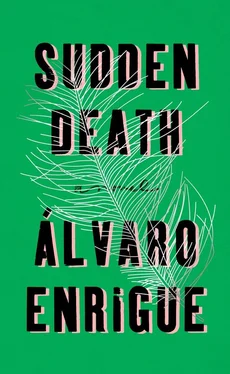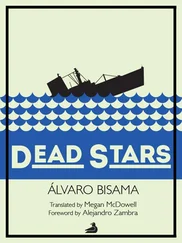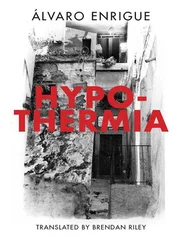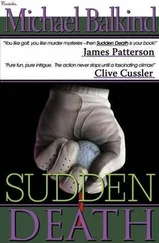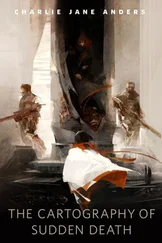From the study of the balls found in the rafters of Westminster Hall, as well as certain clues that come to light when one combs through Antonio Scaino’s rambling Trattato del giuoco della palla (1555), it may be deduced that the core of the pella was identical to that of the proper salon balls: a base of batting kneaded with paste. The base of the salon ball was then wrapped in strips of linen and thread and tapped into shape with a putty knife. Once calibrated, the ball was tied with a string that divided it into nine sections through its upper pole. Then the ball was spun 45 degrees and another nine sections were traced through a second pole. And again, until there were nine poles with nine equators. Each ball a world, a planet dotted with eighty-one ribbons of thread. Finally, the little orb — believed by the ancients to represent the human soul — was covered in cloth and whitewashed.
The pella was fabricated according to a similar procedure, but in more sordid and often clandestine settings: there was something grisly about making balls with human hair, and not everyone was willing to produce an object that took its life from the only part of a dead body that doesn’t rot. In place of the strips of linen, locks of hair were bound around the core and stuck down with lard and flour. It was a lighter ball, less smooth; it bounced like a thing possessed.
Probably because of its soul of human matter, during the Renaissance and Baroque periods the pella was associated in Catholic Europe and Conquest-era America with satanic pursuits.

Scarcely had Jean Rombaud disembarked at Franciscopolis — such was the ridiculous name of the port of Le Havre until the death of King Francis I — before he began to spread the rumor that he was in possession of the darksome braids of Anne Boleyn and that he would make tennis balls with them that would at last gain him entry to the closed courts, where the nobility sweated through one shirt per game, five per set, and fifteen per match. He had always felt that his fresh-washed lion’s mane gave him the right to hardwood and tile: to play for sport rather than money.
By the time the ball maker delivered the four most bewitching balls in the history of Europe, a multitude of buyers had approached Rombaud, offering prices out of all proportion to the size of his treasure: one hundred cows, a villa in Provence, two African slaves, six horses. He declined all invitations to discuss, except that of Philippe de Chabot, minister to the king.
To this negotiation he brought only the fourth ball, a bit smaller and more tightly wound than the others, which from the start he had decided to keep for himself as an amulet. He brought it wrapped in a silk cloth, deep in his purse, which for greater security he had sewn into the lining of his cloak.
Chabot received him in his bedchamber as he was being dressed. It wasn’t the first time they had met. Jean Rombaud had prepared a brief discourse that didn’t skimp on the honeyed rhetoric of a sloe-eyed villain, and which progressed from pleading to blackmail. The minister didn’t ask him to sit, nor did he allow him to make his case. He didn’t even turn to look at him, focused as he was on his servants swaddling him in linens and velvets. What do you want for the balls of the heretic pig, he asked, staring intently at the point of his shoe. I’ve brought one with me as a sample, replied Rombaud, drawing it clumsily from his cloak. The minister brushed a wisp of cloth from his knee, ignoring the object that the executioner held out to him reverently from across the room. We are assured, said Chabot without turning to look at the ball, that they are authentic, because the ambassador of the king of Spain tried to secure the braids for his own conjurations and flew into a rage when he learned that the trophy was on its way to France. I want neither money nor possessions, said Rombaud. The minister lifted his palms in a gesture conveying both interrogation and exasperation. I want a modest title and a position in the royal court as master of fencing and tennis. It can be arranged, but first bring me the balls. I want the king himself to grant me both things; I want it to be in the presence of witnesses and I want him to look me in the eye. The minister glanced at him for the first time, raising his eyebrows in ironic puzzlement. The king is a little busy taking back Savoy, he said, but we’ll call for you when he comes through Paris; the balls will make a nice treat for him; bring them with you the day my messenger commands you to appear at the Louvre.
Seventy-three days later, Jean Rombaud was received by King Francis I in the Salon Bleu, which was crammed with members of the court, petitioners, and financiers. The future fencing and tennis master was wearing a pompous fitted costume that he’d had made for the occasion. For once in his life he was rid of his intolerable three-day beard, and he had combed his bejeweled hair into a tail that he thought was elegant — and in its grave-digger way, it was, though possibly too Spanish for the salons of the king of France.
He didn’t have to wait long in courtyards or antechambers: the king sent for him shortly after he presented himself, and showed a scarcely regal impatience to see the Boleyn balls. Jean Rombaud wasn’t allowed to deliver the lengthy address that he had prepared for this day either. Queen Eleanor approached to witness the great moment, trailing a train of ermine among the filthy boots of her husband’s men. Francis I’s eyes nearly glowed when he opened the carved wooden box that the mercenary had spent a fortune to have made — on credit, of course — and which had seemed magnificent at the inn where he lived but in the palace now looked small and paltry.
The king took one of the balls, weighed it with the calculation of a seasoned tennis player, squeezed it, and turned it in his hand. He pretended to toss it in the air and hit a serve with an imaginary racket. He felt the ball again, then discomfited his wife by putting his nose to it and inhaling deeply, revealing the urge — however remote — to lose himself in the braids that had been the downfall of King Henry and whose spell had snatched England from the pope. Looking at Rombaud, he said at last: They say she was beautiful, yes? Even with a shorn head, Your Majesty, were the only words the poor man was able to speak to his king. Francis tossed the ball into the air and caught it gracefully. He looked out over the salon, cleared his throat as if to request the attention he always had, and said: The new fencing master is rather more handsome than I’d been told; he’ll teach tennis at the court, too, so watch your daughters. The breath of polite laughter moved like a wave through the Salon Bleu. We grant him his request, said the king. He looked Rombaud in the eye: With privileges for life; we have spoken.
“In a New World and Land”

The fourth of October, 1599, was a sunny day in Rome. There’s no evidence that Francisco de Quevedo was in the city on that particular day, but nor is there evidence that he was anywhere else. It is a fact that he did not occupy chair 58 in the solemn ceremony for the awarding of bachelor of arts degrees at the University of Alcalá de Henares, outside Madrid, where he certainly ought to have been.
The most often repeated theory regarding Quevedo’s absence from his own graduation assumes that he was fleeing after a never-resolved murder — probably committed in Madrid — in which he played a part, along with his friend and protector Pedro Téllez Girón, Duke of Osuna and Marquis of Peñafiel.
Читать дальше
